Archives, February, 2010
Friday, February 26th, 2010
From The Mighty Angel by Jerzy Pilch, reviewed today on the Shelf:
by Jerzy Pilch, reviewed today on the Shelf:
“I don’t know,” I replied. “I don’t know, or rather, I know a thousand answers. None of them is entirely true and each of them contains a grain of truth. But nor can it be said that together they comprise some single whole great truth. I drink because I drink. I drink because I like to. I drink because I’m afraid. I drink because I’m genetically predisposed to. All my progenitors drank. My great-grandparents and grandparents drank, my father drank and my mother drank. I have no sisters or brothers, but I’m certain that if I did, all my sisters would drink and all my brothers would drink too. I drink because I have a weak character. I drink because there’s something wrong with my head. I drink because I’m too quiet and I’m trying to be more lively. I drink because I’m the nervous type and I’m trying to calm my nerves. I drink because I’m sad and I’m trying to raise my spirits. I drink when I’m happily in love. I drink because I’m searching for love in vain. I drink because I’m too normal and I need a little craziness. I drink when I’m in pain and I need to ease the pain. I drink out of longing for someone. I drink from an excess of fulfillment when I’m with someone. I drink when I listen to Mozart and when I read Leibnitz. I drink out of sensual pleasure and I drink out of sexual hunger. I drink when I finish my first glass and I drink when I finish my last glass; at such times I drink all the more, because I’ve never yet drunk my last glass.”
Thursday, February 25th, 2010
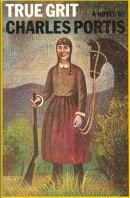 I find out, via Maud Newton, that the Coen brothers have cast the role of Mattie Ross for their upcoming version of True Grit, which is scheduled to be released this Christmas. This is important because the Coens will restore the tale to Mattie’s perspective, the way it was told in Charles Portis’ 1968 novel. In an appreciation of Portis for The Believer (worth reading in full), Ed Park wrote of True Grit:
I find out, via Maud Newton, that the Coen brothers have cast the role of Mattie Ross for their upcoming version of True Grit, which is scheduled to be released this Christmas. This is important because the Coens will restore the tale to Mattie’s perspective, the way it was told in Charles Portis’ 1968 novel. In an appreciation of Portis for The Believer (worth reading in full), Ed Park wrote of True Grit:
The novel . . . could hardly seem more out of step with the countercultural spirit of ’68. Writing in 1928 (i.e., on the eve of the Great Depression), a spinster banker named Mattie Ross revisits the central chapter in her life: the winter of 1873, when, as a fourteen-year-old from Yell County, Arkansas, she hunted down her father’s killer, Tom Chaney, with the help of a tough U.S. marshal that she hires (the “old one-eyed jasper” Rooster Cogburn) and a young Texas Ranger (the cowlicked LaBoeuf). [. . .]
Henry Hathaway’s enjoyable if foreshortened film version (1969) firmly yokes the story to John Wayne, who at sixty-two won his only Oscar for his portrayal of Rooster. Alas, the movie (which also stars Kim Darby as Mattie and Glen Campbell as LaBoeuf) doesn’t capture the retrospective quality of Mattie’s voice, as she fixes on the events over the widening gulf of years (“Time just gets away from us,” she writes, in the book’s penultimate and heartbreaking line). Wayne, in a full-bodied performance, draws the focus away from his employer/charge, so that the title refers far more to Rooster than Mattie.
If you haven’t read True Grit, it, and the rest of Portis’ work, is worth your time.
Wednesday, February 24th, 2010
 The Rumpus has a lengthy interview with Paula Fox. A piece:
The Rumpus has a lengthy interview with Paula Fox. A piece:
Fox: I was assaulted in Jerusalem. I’m trying to write about that. It’s taken me twelve years to get around to it, but it did stop me from smoking. I saw a story in the Times that scientists had discovered the addiction center, which is a prune shaped little thing in the right side of the brain. That was hit during the attack. I was struck to the ground and spent a month in the hospital. Apparently it’s the addiction center for tobacco and well as other things. And I’d been to smoking groups. The neurologist told me that was a hell of a way to quit. [. . .]
Rumpus: It’s been hard to write about till now?
Fox: Yes. I haven’t avoided consciously but I didn’t want to confront certain things. It certainly changed me a lot.
Rumpus: Will it be part of a new memoir?
Fox: Oh no, I think I’ve written all the memoirs I’m going to write.
Wednesday, February 24th, 2010
Michael Schaub, managing editor of Bookslut, was interviewed by the Williamette Week. The session ended with a bout of word association, and his thoughts about some prominent authors made me laugh:
Stephenie Meyer: hot teenagers in trees
Jonathan Safran Foer: veal piccata
John Updike: Episcopalians having anal sex
Pat Conroy: incest and cornbread
Wednesday, February 24th, 2010
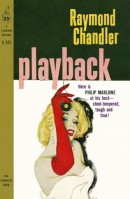 As always, Dan Wagstaff provides endlessly rewarding links—this time, to 10 great Flickr groups for book design and inspiration. . . . These rules for writing fiction by luminaries have been making the rounds. Many are entertaining, though maybe only this one by P. D. James strikes me as universally applicable: “Read widely and with discrimination. Bad writing is contagious.” . . . The Millions interviews John Banville. (“There’s no message. I constantly say one of my absolute mottos is from Kafka, where he says the artist is the man who has nothing to say. I have nothing to say.”) . . . The New Statesman interviews Clive James. (“They say the first person who’ll live to 150 is already alive, but I’ve got a feeling it’s probably not going to be me.”) . . . Independent publishers crow about some of their upcoming spring releases. . . . The Los Angeles Times has announced the nominees for its annual book prizes. . . . Elif Batuman says the latest literary mash-up, Android Karenina, isn’t as far from Tolstoy’s original intentions as you may think. . . . Alex Ross has unveiled the cover for his next book, out in September. . . . David Alpaugh laments the surfeit of poetry these days.
As always, Dan Wagstaff provides endlessly rewarding links—this time, to 10 great Flickr groups for book design and inspiration. . . . These rules for writing fiction by luminaries have been making the rounds. Many are entertaining, though maybe only this one by P. D. James strikes me as universally applicable: “Read widely and with discrimination. Bad writing is contagious.” . . . The Millions interviews John Banville. (“There’s no message. I constantly say one of my absolute mottos is from Kafka, where he says the artist is the man who has nothing to say. I have nothing to say.”) . . . The New Statesman interviews Clive James. (“They say the first person who’ll live to 150 is already alive, but I’ve got a feeling it’s probably not going to be me.”) . . . Independent publishers crow about some of their upcoming spring releases. . . . The Los Angeles Times has announced the nominees for its annual book prizes. . . . Elif Batuman says the latest literary mash-up, Android Karenina, isn’t as far from Tolstoy’s original intentions as you may think. . . . Alex Ross has unveiled the cover for his next book, out in September. . . . David Alpaugh laments the surfeit of poetry these days.
Monday, February 22nd, 2010
The smart general interest site 3 Quarks Daily is offering a prize for the best blog writing about arts and literature. You can read more about it here. They’re accepting nominations in the comments section of the post, and if you feel moved to nominate any review you’ve read on The Second Pass, that would be much appreciated.
Monday, February 22nd, 2010
A weekly roundup of noteworthy reviews from other sources.
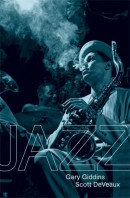 Joe Queenan reviews Jazz, an encyclopedic work by Gary Giddins and Scott DeVeaux: “It is vast, thorough, illuminating, thought-provoking, beautifully written and very entertaining. It is also dense, demanding and fundamentally a scholarly text.” . . . “Almost every page here contains an anecdotal gem”: Robert Sandall reviews the memoir of a 1970s rock writer who “became the trusted ally and drug buddy of so many of the rock aristocracy.” . . . Jonathan Shapiro reviews the latest novel by Henning Mankell, and uses the opportunity to judge between the work of Mankell and his fellow Swedish author, bestseller Stieg Larsson: “Like the songs of ABBA, Larsson is sometimes insipid but never boring; like the plays of August Strindberg, Mankell is often dull but never stupid.” . . . In Chasing the White Dog journalist Max Watman goes on the trail of moonshine, “an underground industry that shows no signs of letting up.” . . . Michael Greenberg reviews Alison Gopnik’s The Philosophical Baby, “both a scientific and romantic book, a result of Gopnik’s charming willingness to imagine herself inside the consciousness of young children.” . . . Ross Posnock finds many things to recommend in Terry Castle’s new book of personal essays, The Professor, not least the way it might complicate our feelings about the “cardboard figure of fun” that is its title. . . . Mark Holcomb reviews Lorraine Adams’ new novel: “Adopting the propulsion and framework of an intricately plotted political thriller, The Room and the Chair mercilessly critiques our addiction to narratives of Western exceptionalism even as it compels us to turn its pages.”
Joe Queenan reviews Jazz, an encyclopedic work by Gary Giddins and Scott DeVeaux: “It is vast, thorough, illuminating, thought-provoking, beautifully written and very entertaining. It is also dense, demanding and fundamentally a scholarly text.” . . . “Almost every page here contains an anecdotal gem”: Robert Sandall reviews the memoir of a 1970s rock writer who “became the trusted ally and drug buddy of so many of the rock aristocracy.” . . . Jonathan Shapiro reviews the latest novel by Henning Mankell, and uses the opportunity to judge between the work of Mankell and his fellow Swedish author, bestseller Stieg Larsson: “Like the songs of ABBA, Larsson is sometimes insipid but never boring; like the plays of August Strindberg, Mankell is often dull but never stupid.” . . . In Chasing the White Dog journalist Max Watman goes on the trail of moonshine, “an underground industry that shows no signs of letting up.” . . . Michael Greenberg reviews Alison Gopnik’s The Philosophical Baby, “both a scientific and romantic book, a result of Gopnik’s charming willingness to imagine herself inside the consciousness of young children.” . . . Ross Posnock finds many things to recommend in Terry Castle’s new book of personal essays, The Professor, not least the way it might complicate our feelings about the “cardboard figure of fun” that is its title. . . . Mark Holcomb reviews Lorraine Adams’ new novel: “Adopting the propulsion and framework of an intricately plotted political thriller, The Room and the Chair mercilessly critiques our addiction to narratives of Western exceptionalism even as it compels us to turn its pages.”
Monday, February 22nd, 2010
Slate recently hosted a nearly one-hour conversation between Meghan O’Rourke, Stephen Metcalf, and Troy Patterson about Don DeLillo’s White Noise, one of my all-time least favorite novels. Patterson dislikes it as vehemently as I do. Metcalf, whose criticism I’ve often enjoyed, loves it, and says he “laughed out loud constantly” while reading it. This is unimaginable to me. He also says that in reading it, he doesn’t get a sense “at all” of “a smug sense of superiority over the suburban droid.” That’s one of the most potent things I took from the book, a condescending (and uncomprehending) caricature of suburban living. O’Rourke is technically the “moderator,” but really functions as a full third participant, and she seems torn between the claims of the other two.
What I like most is that Patterson makes his case, briefly, and then sits back and lets his fellow panelists read from and defend the book in a way that makes it sound as bad as it is. In fact, by the end Metcalf seems to have talked himself into a lesser enthusiasm, saying that the book succeeds as satire even if that satire is driven home “somewhat tiresomely and excessively.”
Friday, February 19th, 2010
Fridays normally bring The Beat, the weekly roundup of reviews from other sources. But I’ve been meaning to switch the feature to Mondays for a while now (makes more sense there for several reasons), so this is the week that will happen. Thus, no Beat today. Seventy-two hours from now (give or take), a Beat.
Friday, February 19th, 2010
 The New Yorker’s Book Bench interviews Julie Klausner, whose new book is “a dating memoir that manages to avoid excessive self-deprecation, self-pity, or self-flagellation.” Among other issues, Klausner discusses whether an entire generation of young men are “a bunch of wimpy little Kermits.” Here she is on the importance of shared taste in pop culture:
The New Yorker’s Book Bench interviews Julie Klausner, whose new book is “a dating memoir that manages to avoid excessive self-deprecation, self-pity, or self-flagellation.” Among other issues, Klausner discusses whether an entire generation of young men are “a bunch of wimpy little Kermits.” Here she is on the importance of shared taste in pop culture:
In the book, you repeatedly assume a guy with the right taste in books, movies, and music will automatically be a romantic fit for you. Your assumptions are proved wrong, to hilarious effect, but as someone who obviously cares about culture, where do you draw the line? For instance, could you love someone who though “Crash” was totally awesome?
Do you mean Crash the Oscar-winning movie about race, or Crash the David Cronenberg movie about people who get turned on by car crashes? Neither movie is an acceptable choice, but don’t get a ride from the guy who likes the second one. As for the question, I think that since the nineteen-fifties, when the counter culture was created, it’s been important for creative and critical people to connect about what they do and don’t love, and I think it’s a tribute to the influence of social networking and its association with youth culture that we can finally develop contempt for teen-agers who define themselves by a hyperlinked list of bands or book titles. The “you are what you like” thing is just suddenly immature, and when I saw the preview for 500 Days of Summer, and Joseph Gordon-Levitt fell in love with Zooey Deschanel as soon as she recognized a Smiths song on his iPod, I reacted really virulently. Because it should have been enough for a guy his character’s age to go for a girl who looks like a pinup, with eyes like swimming pools—it wasn’t until she tipped him off that she and he were the same on the taste-o-meter when he felt safe enough to fall.
Friday, February 19th, 2010
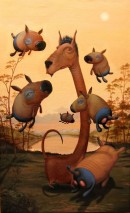 Jeff VanderMeer highly recommends a new graphic novel about imaginary beasts, influenced by Bruegel and Bosch. (“With names like the Long Necked Lotus Loris, Northern BaronBeest, and Spangled Swamp Horse we should be well into dangerous ‘whiimsy’ territory, but somehow even the floating creatures seem fully grounded in something real.”) . . . The more I read about David Shields’ new book, the more I want to read it, to see if it could possibly annoy me as much as I think it will. . . . In 1978, Nicola Nikolov, a writer who had fled communist Bulgaria to come to the U.S., wrote letters to John Cheever, J. D. Salinger, Ray Bradbury, and Kurt Vonnegut asking them to evaluate some of his work. He kept their responses. . . . If you’re in the market for the worst novel ever written, be patient: I believe it’s on its way. . . . Peter Terzian looks at the thriving art of painting book covers and some of the top practitioners. (“It’s surely no coincidence that artists are choosing the book as a subject in this era of new reading technologies. But these paintings are too joyous and affectionate to be memento mori for the printed word.”) . . . Chad Post writes about eight Latin American novels that deserve to benefit from “Bolañomania.” . . . To mark Presidents’ Day, the Daily Beast ranks the 19 best-read presidents. Millard Fillmore is No. 12. I won’t spoil any more than that. . . . Sarah Weinman rounds up reaction to the death of Dick Francis.
Jeff VanderMeer highly recommends a new graphic novel about imaginary beasts, influenced by Bruegel and Bosch. (“With names like the Long Necked Lotus Loris, Northern BaronBeest, and Spangled Swamp Horse we should be well into dangerous ‘whiimsy’ territory, but somehow even the floating creatures seem fully grounded in something real.”) . . . The more I read about David Shields’ new book, the more I want to read it, to see if it could possibly annoy me as much as I think it will. . . . In 1978, Nicola Nikolov, a writer who had fled communist Bulgaria to come to the U.S., wrote letters to John Cheever, J. D. Salinger, Ray Bradbury, and Kurt Vonnegut asking them to evaluate some of his work. He kept their responses. . . . If you’re in the market for the worst novel ever written, be patient: I believe it’s on its way. . . . Peter Terzian looks at the thriving art of painting book covers and some of the top practitioners. (“It’s surely no coincidence that artists are choosing the book as a subject in this era of new reading technologies. But these paintings are too joyous and affectionate to be memento mori for the printed word.”) . . . Chad Post writes about eight Latin American novels that deserve to benefit from “Bolañomania.” . . . To mark Presidents’ Day, the Daily Beast ranks the 19 best-read presidents. Millard Fillmore is No. 12. I won’t spoil any more than that. . . . Sarah Weinman rounds up reaction to the death of Dick Francis.
Thursday, February 18th, 2010
Roger Scruton on George Bernard Shaw:
Concerning no subject would he be deterred by the minor accident of complete ignorance from penning a definitive opinion.
Wednesday, February 17th, 2010
Over at The Rumpus, Eric Puchner shares some thoughts about coming up with titles for stories. He offers a list of Titles to Avoid, like The Faux Poetic but Authentically Meaningless (“Hunt the Mist Slowly”). And he says the difficulty in the craft is not limited to amateurs:
I’ve seen some jaw-droppingly awful titles, often from very gifted writers. And I’m not just talking about my students: The Great Gatsby is an inspired title, one for the ages, but it wasn’t Fitzgerald’s idea. He wanted to call the novel Trimalchio in West Egg, which sounds like something Dr. Seuss might have dreamed up for The Playboy Channel. An early version of Portnoy’s Complaint was called A Jewish Patient Begins His Analysis. At various times, Catch-22 was called Catch-18, Catch-11, Catch-14, and Catch-17. And some classic novels have stood the test of time, despite having terrible titles. (The Heart Is a Lonely Hunter, for example, never fails to make me giggle.)
Wednesday, February 17th, 2010
The shortlist of ten finalists for this year’s Best Translated Book Award has been announced. The winner will be revealed on March 10.
Tuesday, February 16th, 2010
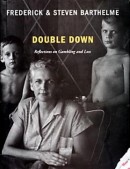 From Double Down: Reflections on Gambling and Loss
From Double Down: Reflections on Gambling and Loss by Frederick & Steven Barthelme:
by Frederick & Steven Barthelme:
When you’re sitting at a blackjack table with some guy with a Boston accent and a tenpenny common nail bent in half and hanging from his pierced ear, listening to him tell transcendently stupid snail jokes, it’s a battle to believe that life is a dreary chore, designed that way by the Good Lord for some inexplicable reason. In fact, at that moment the world looks like a place of great tenderness and beauty. We liked this place of jokes and jackpots, preferred to think that a great new blackjack strategy or more fabulous run of cards would come. Each time we went to Gulfport, part of the ritual was “Here’s the new plan,” both serious and not, a hope and a joke at the same time. It was a problem, this tendency to think that good things were going to happen, that things would turn out well in the face of acres of evidence to the contrary. Father could never have anticipated that his faith that life really did make sense and his hope that just by keeping at it success could be won would eventually figure in our donation of so much of his well-preserved money to the casinos.
Tuesday, February 16th, 2010
A continuing series that highlights books recently acquired by publishing houses for future release. Each post features a book we’re looking forward to, and a book we’re . . . not.
The Cherry:
Stephen Tignor’s The End of the Earth: Borg, McEnroe, Connors, and the Final Days of Tennis’ Golden Age, a chronicle of how a bunch of free-spirited but ferocious rivals took the sport farther from its gentlemanly roots than anyone thought possible and gave it a mystique that has never been equaled since.
The Pit:
Gidget the Taco Bell Dog’s trainer Sue Chipperton’s A (Famous) Dog’s Life, celebrating the unusual life of this celebrated celebrity dog, and exploring the life of a Hollywood animal trainer who has worked on everything from Legally Blonde and the Aflac commercials to Titanic and Gran Torino.
Friday, February 12th, 2010
A weekly roundup of noteworthy reviews from other sources.
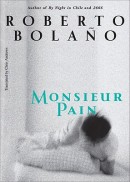 Will Blythe reviews Roberto Bolaño’s Monsieur Pain, “a surrealist’s attic of unlikely juxtapositions” in which “[t]he expectations of a conventional mystery are thwarted at every turn.” . . . Alan Wolfe is very clear: “Let’s get my judgment of Thomas Sowell’s new book out of the way first. There is not a single interesting idea in its more than three-hundred pages.” But that judgment doesn’t get out of the way so much as it gets repeated in different varieties throughout the review: “The flatness of [Sowell’s] sentences is matched by the flatness of his trajectory. Whatever darkness exists in the world does not reside in his soul. He undertakes no bildung and experiences no crises. He learns nothing that does not confirm what he already knew. If he were a character in a novel, it would end on page one.” . . . I recently mentioned David Peace on the blog. Richard Rayner reviews his latest, based on a real-life 1948 crime in which a Tokyo bank robber poisoned a dozen people. (Rayner: “Expect to be enthralled and maybe amazed, although not cheered up or even necessarily entertained.”) . . . Graeme Wood says that the stories in Ted Conover’s The Routes of Man, about global roadways (in China, Peru, Israel, etc.), are “compelling,” and that: “The book’s faults mostly follow from its broad theme and structure. Indeed, so loose is the organizing principle that two of the chapters, including the best, have little to do with roads.” . . . The New Republic’s new review site, The Book, joins The Second Pass (and others, of course) in appreciating more obscure titles. This week, acclaimed Dostoevsky biographer Joseph Frank writes about a memoir by someone who grew up in Mussolini’s Italy before moving to Palestine. . . . A review to print out and read over the weekend: William Deresiewicz on the stories Tolstoy wrote in old age, a time in the author’s life “marked by a turn toward ideological radicalism and spiritual extremity.”
Will Blythe reviews Roberto Bolaño’s Monsieur Pain, “a surrealist’s attic of unlikely juxtapositions” in which “[t]he expectations of a conventional mystery are thwarted at every turn.” . . . Alan Wolfe is very clear: “Let’s get my judgment of Thomas Sowell’s new book out of the way first. There is not a single interesting idea in its more than three-hundred pages.” But that judgment doesn’t get out of the way so much as it gets repeated in different varieties throughout the review: “The flatness of [Sowell’s] sentences is matched by the flatness of his trajectory. Whatever darkness exists in the world does not reside in his soul. He undertakes no bildung and experiences no crises. He learns nothing that does not confirm what he already knew. If he were a character in a novel, it would end on page one.” . . . I recently mentioned David Peace on the blog. Richard Rayner reviews his latest, based on a real-life 1948 crime in which a Tokyo bank robber poisoned a dozen people. (Rayner: “Expect to be enthralled and maybe amazed, although not cheered up or even necessarily entertained.”) . . . Graeme Wood says that the stories in Ted Conover’s The Routes of Man, about global roadways (in China, Peru, Israel, etc.), are “compelling,” and that: “The book’s faults mostly follow from its broad theme and structure. Indeed, so loose is the organizing principle that two of the chapters, including the best, have little to do with roads.” . . . The New Republic’s new review site, The Book, joins The Second Pass (and others, of course) in appreciating more obscure titles. This week, acclaimed Dostoevsky biographer Joseph Frank writes about a memoir by someone who grew up in Mussolini’s Italy before moving to Palestine. . . . A review to print out and read over the weekend: William Deresiewicz on the stories Tolstoy wrote in old age, a time in the author’s life “marked by a turn toward ideological radicalism and spiritual extremity.”
Thursday, February 11th, 2010
The opening sentence of Radical Chic by Tom Wolfe:
by Tom Wolfe:
At 2 or 3 or 4 a.m., somewhere along in there, on August 25, 1966, his forty-eighth birthday, in fact, Leonard Bernstein woke up in the dark in a state of wild alarm.
Thursday, February 11th, 2010
If you’re on Twitter, I recommend following Alain de Botton. (And hey, while you’re at it, why not follow The Second Pass.) De Botton isn’t always uplifting, but he’s good at the form. Three of his recent posts:
The book will be killed not directly by new technology but by the monkey mind it breeds. The issue is concentration, not royalties.
Writing opens up the otherwise unusual prospect of being violently disliked by strangers & training oneself not to mind.
Embarking on another book, writers seldom dare note that few of their favourite authors ever wrote more than 2 or 3 works they really loved.
Thursday, February 11th, 2010
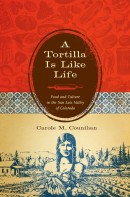 The Diagram Prize for the Oddest Book Title of the Year (which I’ve written about before, here) has named a “very longlist” of finalists for the first time. It turns out that Twitter led to a huge increase in nominations this year, though Horace Bent, who oversees the prize, is not feeling very happy about technology in general:
The Diagram Prize for the Oddest Book Title of the Year (which I’ve written about before, here) has named a “very longlist” of finalists for the first time. It turns out that Twitter led to a huge increase in nominations this year, though Horace Bent, who oversees the prize, is not feeling very happy about technology in general:
The adage that everyone has a book in them may well be true, but that doesn’t mean every Tom, Dick and Harry out there can bash a few words out on a keyboard and then upload it to Scribd with a humorous title like: The Historic Adventures of the Purple Waffle Iron on His Horse Made of Asparagus, and then think they have a chance at winning my prestigious award. I refuse to acknowledge such submissions.
The shortlist will be announced on Feb. 19, and then the public gets to vote for the winner. For my money, these five should be the early favorites for the award:
A Tortilla is Like Life
Collectible Spoons of the Third Reich
Governing Lethal Behavior in Autonomous Robots
Is the Rectum a Grave?
The Master Cheesemakers of Wisconsin
(Via)
Tuesday, February 9th, 2010
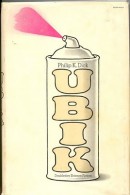 John Gall shares a few selections from a “huge and varied archive of Philip K. Dick covers.” . . . Book Lovers Never Go to Bed Alone, a blog devoted to photos of people’s bookshelves. . . . Levi Stahl is coping with shelves that are unusually bare. . . . Someone has a bookcase in the form of Pac-Man. . . . I’m always happy to be reminded of David Brent’s reading of John Betjeman. . . . Mark Sarvas recently helped judge a prize for first novels, and he came away from the experience with several tips for writers. . . . Speaking of debut novels, this week Lit Drift is giving away a copy of The Children’s Day by Michiel Heyns, about a South African boy’s coming of age in the 1960s. . . . Later this month, bookmark collectors are holding their first convention. It’s being staged online, which seems a bit odd for such a tactile pursuit. . . . Mark Athitakis says it’s only time to panic about the waning influence of book reviews “if you figure this is something new—or if you figure that getting readers to buy books is the reviewer’s job.”
John Gall shares a few selections from a “huge and varied archive of Philip K. Dick covers.” . . . Book Lovers Never Go to Bed Alone, a blog devoted to photos of people’s bookshelves. . . . Levi Stahl is coping with shelves that are unusually bare. . . . Someone has a bookcase in the form of Pac-Man. . . . I’m always happy to be reminded of David Brent’s reading of John Betjeman. . . . Mark Sarvas recently helped judge a prize for first novels, and he came away from the experience with several tips for writers. . . . Speaking of debut novels, this week Lit Drift is giving away a copy of The Children’s Day by Michiel Heyns, about a South African boy’s coming of age in the 1960s. . . . Later this month, bookmark collectors are holding their first convention. It’s being staged online, which seems a bit odd for such a tactile pursuit. . . . Mark Athitakis says it’s only time to panic about the waning influence of book reviews “if you figure this is something new—or if you figure that getting readers to buy books is the reviewer’s job.”
Tuesday, February 9th, 2010
Thank you to anyone who’s ever commented on this blog. The vast majority of comments are from spambots, and I delete them in bulk. Frequently. I have to say, though most spambots leave crazy links or very brief, generic sentiments (”Very interesting post. I’ve bookmarked you!”), some rise to the level of demented poetry:
Hi, nice post. You will date when you are easy and that is not unusual or funny. You take the outside friends if they are stimulating fun of you. It will be serious, but maybe you should make new admirers. Ones that will aid almost you and not make fun of you for being moral and mature about geological dating. I have to say that being 18 and never in a kinship is fairly normal. Soon you will go to college and believably date there but until then, commend that you are special and no one specially your “friends” should be making fun of you for that.
So true.
Monday, February 8th, 2010
 In college, a good friend of mine used to bemoan news of his favorite rock stars being in happy relationships, because he figured that meant the ensuing records would be no good. The idea that artists in any medium create sharper work when they’re unhappy—and that unhappiness is a more fertile subject than happiness—is a potent, long-standing one, and there’s plenty of evidence to support it. As Amy Bloom puts it in a recent essay in the New York Times: “Smart people often talk trash about happiness, and worse than trash about books on happiness, and they have been doing so for centuries.”
In college, a good friend of mine used to bemoan news of his favorite rock stars being in happy relationships, because he figured that meant the ensuing records would be no good. The idea that artists in any medium create sharper work when they’re unhappy—and that unhappiness is a more fertile subject than happiness—is a potent, long-standing one, and there’s plenty of evidence to support it. As Amy Bloom puts it in a recent essay in the New York Times: “Smart people often talk trash about happiness, and worse than trash about books on happiness, and they have been doing so for centuries.”
Terry Teachout recently shared this excerpt from The Watch That Ends the Night by Hugh MacLennan:
by Hugh MacLennan:
Happiness is one of the hardest things to write about, and the difficulty of doing so makes me long to be a musician or a painter, for painters and musicians are at ease with the supreme emotion, which is not grief but joy abounding. To be able to make a joyful noise unto the Lord or a praise of colors and forms would seem to me to equate any man with gods or little children. Happiness annihilates time. We measure history by its catastrophes, we recall the weather by its storms, but the periods of peace and joy—who can describe them?
It does seem that painting and classical music are two of the only art forms that can safely approach the subjects of contentment and joy. Which is to say that abstraction can approach it. Much rarer is the book or film that does the same—Mike Leigh’s brilliant Happy-Go-Lucky comes to mind. But what about books? Ingrid Norton says that J. L. Carr’s A Month in the Country accomplishes the feat:
Carr tells a tale of happiness which burnishes such a strong and subtle impression in the mind of the reader that it seems you yourself have passed through the season of contentment Carr describes.
Friday, February 5th, 2010
A weekly roundup of noteworthy reviews from other sources.
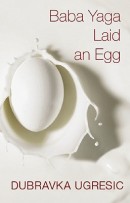 Mary Gaitskill reviews the “strange and wonderful” Baba Yaga Laid an Egg by Dubravka Ugresic: “Baba Yaga’s hut is a place of chaos, riddles, slippage, and between-ness, where life lives in death, beauty nests inside pestilence, and mothers suck their daughter’s breasts. In this place, kitsch and cuteness are on speaking terms with the highest refinement, the deepest sufferings and joys; Ugresic can move from one state to the other with earthy grace.” . . . William Deresiewicz doesn’t mince words about Nabokov’s The Original of Laura, calling it “a handful of crumbs, a bit of lint, a few coins . . . a sham, a scam.” . . . A “warm, fair” biography of Paul McCartney “offers a reconsideration of the dynamics of the band and McCartney’s role in it, arguing that Paul was as much a leader as John.” . . . Claire Dederer reviews the lovable “grouchy academics, pissed-off orphans, and melancholy middle-aged lawyers” in Amy Bloom’s latest collection of stories. . . . Charles Peterson reviews new books about Facebook and MySpace. . . . Alan Light reads new memoirs by two rockers who are used to being in the background, behind Sting and Springsteen, respectively. The results “aren’t satisfying as either literary efforts or historical documents.”
Mary Gaitskill reviews the “strange and wonderful” Baba Yaga Laid an Egg by Dubravka Ugresic: “Baba Yaga’s hut is a place of chaos, riddles, slippage, and between-ness, where life lives in death, beauty nests inside pestilence, and mothers suck their daughter’s breasts. In this place, kitsch and cuteness are on speaking terms with the highest refinement, the deepest sufferings and joys; Ugresic can move from one state to the other with earthy grace.” . . . William Deresiewicz doesn’t mince words about Nabokov’s The Original of Laura, calling it “a handful of crumbs, a bit of lint, a few coins . . . a sham, a scam.” . . . A “warm, fair” biography of Paul McCartney “offers a reconsideration of the dynamics of the band and McCartney’s role in it, arguing that Paul was as much a leader as John.” . . . Claire Dederer reviews the lovable “grouchy academics, pissed-off orphans, and melancholy middle-aged lawyers” in Amy Bloom’s latest collection of stories. . . . Charles Peterson reviews new books about Facebook and MySpace. . . . Alan Light reads new memoirs by two rockers who are used to being in the background, behind Sting and Springsteen, respectively. The results “aren’t satisfying as either literary efforts or historical documents.”
Thursday, February 4th, 2010
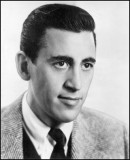 Joanna Smith Rakoff remembers her time answering J. D. Salinger’s fan mail. . . . John Seabrook once went to Salinger’s house to watch a movie. . . . And editor Tim Bates recounts communicating with Salinger in the 1990s when his books were being repackaged in the UK. . . . Lord, how I love Jill Lepore. (“I suspect that reading A People’s History at fourteen is a bit like reading The Catcher in the Rye at the same age.”) Some commenters take umbrage, but I think they’re (slightly) twisting Lepore’s point in order to take umbrage. . . . Abe Books gathers its top ten books about drink. Some priceless covers in the batch. . . . John Scalzi writes a scathing, very funny post about being on the author end of the Amazon-Macmillan dustup. (“Hey, you want to know how to piss off an author? It’s easy: Keep people from buying their books. You want to know how to really piss them off? Keep people from buying their books for reasons that have nothing to do with them.”) . . . On the same subject, Caleb Crain with a customarily thoughtful look at the possible future of book publishing. . . . Jessa Crispin writes about “spinster fear” and defends the books of Elizabeth Gilbert. . . . Charles McGrath profiles Don DeLillo, and elicits this quote, which both confirms DeLillo’s humorlessness and cements his lifetime ban from any parties I throw: “I only smile when I’m alone.” . . . A new blog interviews designer Carin Goldberg. (Via Casual Optimist)
Joanna Smith Rakoff remembers her time answering J. D. Salinger’s fan mail. . . . John Seabrook once went to Salinger’s house to watch a movie. . . . And editor Tim Bates recounts communicating with Salinger in the 1990s when his books were being repackaged in the UK. . . . Lord, how I love Jill Lepore. (“I suspect that reading A People’s History at fourteen is a bit like reading The Catcher in the Rye at the same age.”) Some commenters take umbrage, but I think they’re (slightly) twisting Lepore’s point in order to take umbrage. . . . Abe Books gathers its top ten books about drink. Some priceless covers in the batch. . . . John Scalzi writes a scathing, very funny post about being on the author end of the Amazon-Macmillan dustup. (“Hey, you want to know how to piss off an author? It’s easy: Keep people from buying their books. You want to know how to really piss them off? Keep people from buying their books for reasons that have nothing to do with them.”) . . . On the same subject, Caleb Crain with a customarily thoughtful look at the possible future of book publishing. . . . Jessa Crispin writes about “spinster fear” and defends the books of Elizabeth Gilbert. . . . Charles McGrath profiles Don DeLillo, and elicits this quote, which both confirms DeLillo’s humorlessness and cements his lifetime ban from any parties I throw: “I only smile when I’m alone.” . . . A new blog interviews designer Carin Goldberg. (Via Casual Optimist)
Thursday, February 4th, 2010
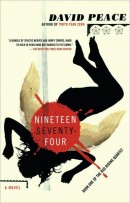 In one of those odd cultural clusters that sometimes come along, I went from never having heard of David Peace (that I could remember) to hearing only of David Peace. Or so it seems.
In one of those odd cultural clusters that sometimes come along, I went from never having heard of David Peace (that I could remember) to hearing only of David Peace. Or so it seems.
At a friend’s place for dinner the other night, the friend raved about Peace’s Nineteen Seventy-Four , the first book in a series of four known as the Red Riding Quartet. In Nineteen Seventy-Four, a Yorkshire crime correspondent investigates a series of child murders. The books have been compared to James Ellroy, and they sound extra-grim. (The series’ striking covers were designed by the brilliant Gregg Kulick.) Then another friend mentioned that she recently assigned a review of Peace’s new novel, Occupied City
, the first book in a series of four known as the Red Riding Quartet. In Nineteen Seventy-Four, a Yorkshire crime correspondent investigates a series of child murders. The books have been compared to James Ellroy, and they sound extra-grim. (The series’ striking covers were designed by the brilliant Gregg Kulick.) Then another friend mentioned that she recently assigned a review of Peace’s new novel, Occupied City . And then I came across Whitney Matheson’s post about a series of films produced by IFC based on the Red Riding quartet, though it’s been truncated into a cinematic trilogy. A trailer for all three movies here.
. And then I came across Whitney Matheson’s post about a series of films produced by IFC based on the Red Riding quartet, though it’s been truncated into a cinematic trilogy. A trailer for all three movies here.
Thursday, February 4th, 2010
Writer Rodrigo Fresán recalls a time in his life when he was a book thief:
And one perfect winter morning, I challenged someone who at the time was a good friend and rival, another consummate book thief, to the ultimate test.
He and I stationed ourselves at one end of Avenida Corrientes, in Buenos Aires, famous for the number of bookstores located along it, bookstores that are still there, I think, though I’m writing this from so far away. And we set ourselves the goal — each of us on one side of the street, previously selected by the flip of a coin — to steal the seven volumes of Proust’s In Search of Lost Time. In the order of publication.
I ought to say that I succeeded and he didn’t, and that our friendship was never the same again.
Wednesday, February 3rd, 2010
In writing the piece about Joe Palmer that went up today, I was tempted to include a lot more of his writing. As it is, the review is imbalanced in his favor, but the way I figure it, it’s better to read him than me. But I wanted to share just two other brief excerpts (of many) that didn’t make it into the final version:
“In Australia practically everybody goes to the races,” said the visitor to our shores. “And they drink. Those are the two principal pastimes.”
Well, it seemed that the Australians were well grounded in the fundamentals. With an encyclopedia to guide them they could not have picked amusements on which time had bestowed a greater accolade. The Greeks did both around the funeral pyre of Achilles. There had been instances since.
And this about someone whose job at Saratoga was to keep ducks out of a pool in front of a steeplechase jump:
Don’t know if you ever tried to shoo a duck out of water, but unless you wade, the duck has all the best of it. . . . The man who handled this has probably been snatched to glory by this time and is betting now on which constellations smash first, and the ducks were no doubt eaten by stable hands, since this was in the ’30s, when times were not so good and any fowl within three miles of a race track held its life by no very certain tenure.
Wednesday, February 3rd, 2010
David Shields’ Reality Hunger: A Manifesto has generated mucho buzz, including enough A-list blurbs to sink an aircraft carrier. I’m going to dig in soon, but I can’t say I’m optimistic. For one thing, there’s this interview in the just-published February issue of Bookslut, in which Shields offers up several possible nuggets for Andrew Sullivan’s Poseur Alert. Including this one:
has generated mucho buzz, including enough A-list blurbs to sink an aircraft carrier. I’m going to dig in soon, but I can’t say I’m optimistic. For one thing, there’s this interview in the just-published February issue of Bookslut, in which Shields offers up several possible nuggets for Andrew Sullivan’s Poseur Alert. Including this one:
I swear to God, I can’t read a book unless it has miniature numbered sections. I exaggerate, but only slightly. I think of so many books that I love and so many of them are numbered: Pascal’s Pensées, Maggie Nelson’s Bluets, Wittgenstein, The Pharmacist’s Mate, 8, Wenderoth, Lindqvist, Pessoa, Daudet, Cheever’s Journals, Rochefoucauld, James Richardson, Donald Patterson, Cyril Connolly. I’m not 100% sure that all of these books are numbered, but they have at minimum some kind of numerological structure, and the key thing for me is that the numbers pretend to be a rational order, and the work blows that apart. The tension between the order of the numbers and the chaos of life I find, I’ll say it, erotic.
Tuesday, February 2nd, 2010
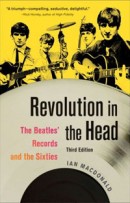 A friend recently introduced me to Revolution in the Head by Ian MacDonald, an addictive song-by-song analysis of the Beatles’ career. In its obituary for MacDonald (who committed suicide in 2003 at the age of 54), the Guardian wrote:
A friend recently introduced me to Revolution in the Head by Ian MacDonald, an addictive song-by-song analysis of the Beatles’ career. In its obituary for MacDonald (who committed suicide in 2003 at the age of 54), the Guardian wrote:
MacDonald carefully anatomised every record the Beatles made, drawing attention to broad themes, particular examples of inspiration and moments of human frailty alike.
What could have been a dry task instead produced a volume so engagingly readable, so fresh in its perceptions and so enjoyable to argue with that, in an already overcrowded field, it became an immediate hit.
The book was originally published in 1994, and has been revised a couple of times since. MacDonald’s voice here is conversational and deeply intelligent. He was obviously a fan—he was given access to the band’s master recordings for this project, and going through them as carefully as he did would require fandom—but he’s not overly reverent. In fact, he’s often most entertaining when tearing a song down, as he does here:
If any single recording shows why The Beatles broke up, it is “Maxwell’s Silver Hammer.” Compulsively fertile in melody and fascinated by music’s formal beauties, McCartney could, when unrestrained by Lennon’s cynicism, fatally neglect meaning and expression. This ghastly miscalculation—of which there are countless equivalents on his garrulous sequence of solo albums—represents by far his worst lapse of taste under the auspices of The Beatles.
Or this, about “Across the Universe”:
Sadly, its vague pretensions and listless melody are rather too obviously the products of acid grandiosity rendered gentle by sheer exhaustion. [. . .] [I]t gradually dissolved into a morass of out-of-tune wahwah guitar and squeaky backing vocals by two of the band’s teenage girl fans who stood sentinel all day outside Abbey Road and who were asked in on the spur of the moment.
In a recent review of the book, John Carvill wrote, “It’s a sign of how persuasive a critic [MacDonald] is that the impulse is not to scoff at his harsh assessment[s], but to feel impelled to at least think twice before moving on.” The perfect example of that, to this reader, is MacDonald’s conclusion about “Here Comes the Sun”: “Prettily atmospheric, the result is a little too faux-naïf to appeal to those lacking the requisite sweet tooth.” My instinct should be to argue against this, since “Here Comes the Sun” is one of my favorite Beatles song. But if I’m honest, MacDonald is right; I just have that sweet tooth.
Even when MacDonald started with a truism (as when he wrote that “We Can Work It Out” is “a classic instance of Lennon and McCartney collaborating as equals”), he quickly moved on to more complicated thoughts:
McCartney wrote the words and music to the eight-bar verse/chorus, Lennon the words and music to the sixteen-bar middle. . . . The usual critical line, derived from Lennon’s remark to this effect to Playboy in 1980, is that his section is impatiently realistic beside the cajoling optimism of McCartney’s part. This, though, misreads the song, which is not only tersely forthright throughout, but tough in passages which Lennon had no hand in.
Carvill again: “Scholarly yet irreverent, highly serious but always richly entertaining, the book not only sends the reader back to the music it describes, but also repays repeated readings.” All true. If you’re a fan of the band, I highly recommend MacDonald’s Revolution.
Monday, February 1st, 2010
 Nevin Martell’s Looking for Calvin and Hobbes
Nevin Martell’s Looking for Calvin and Hobbes details (as best it can) the life of reclusive cartoonist Bill Watterson. The book allegedly suffers from the very problem that drives it—Martell can’t find, much less speak to, Watterson.
details (as best it can) the life of reclusive cartoonist Bill Watterson. The book allegedly suffers from the very problem that drives it—Martell can’t find, much less speak to, Watterson.
Watterson isn’t as maniacal about his invisibility as Salinger was, and he’s even emerged to give a rare interview (over e-mail) to Cleveland.com. Yet another scoop for Cleveland.com! The results are what you might expect from someone so intensely private. He doesn’t seem eager to discuss much, and Martell may be lucky to have not found him. Watterson certainly doesn’t sound conflicted about his beloved strip’s relatively short life:
It’s always better to leave the party early. If I had rolled along with the strip’s popularity and repeated myself for another five, 10 or 20 years, the people now “grieving” for “Calvin and Hobbes” would be wishing me dead and cursing newspapers for running tedious, ancient strips like mine instead of acquiring fresher, livelier talent. And I’d be agreeing with them. I think some of the reason “Calvin and Hobbes” still finds an audience today is because I chose not to run the wheels off it. I’ve never regretted stopping when I did.
(Via Galleycat)
Monday, February 1st, 2010
Eric Dexheimer has a piece worth reading in the Austin American-Statesman (found via Books, Inq.) about the process of banning certain books and periodicals in Texas prisons:
In the past five years, volumes on massage, home health care, circumcision, vintage aircraft nose art, gardening, Dungeons & Dragons and a pictorial history of restaurant menus were rejected for displaying too much explicit material.
Inmates enrolled in sex offender treatment programs, often for pedophilia, cannot receive any reading material except newspapers, religious material, and legal or educational publications. But a ban on images of nude children applies to everyone, Smith said. [. . .]
Art has proved especially tricky to regulate. Shelby said she tries to educate mailroom workers to keep their hands off books of paintings featuring naked adults. Yet many great works also display naked children, and books featuring the work of some of the world’s best-known artists, including Caravaggio and Rembrandt, have been blocked. [. . .]
In an effort to separate art from child porn, reviewers have come up with a test, Shelby said: If a naked child has clearly visible wings, it is a legitimate cherub and the book can stay. No wings? It must go.
“If he is naked, the Baby Jesus would be denied,” she said.
by Jerzy Pilch, reviewed today on the Shelf:

 I find out, via
I find out, via  The Rumpus has
The Rumpus has  As always, Dan Wagstaff provides endlessly rewarding links—this time, to
As always, Dan Wagstaff provides endlessly rewarding links—this time, to  Joe Queenan
Joe Queenan  The New Yorker’s Book Bench
The New Yorker’s Book Bench  Jeff VanderMeer
Jeff VanderMeer  From
From  Will Blythe
Will Blythe  The Diagram Prize for the Oddest Book Title of the Year (which I’ve written about before,
The Diagram Prize for the Oddest Book Title of the Year (which I’ve written about before,  John Gall
John Gall  In college, a good friend of mine used to bemoan news of his favorite rock stars being in happy relationships, because he figured that meant the ensuing records would be no good. The idea that artists in any medium create sharper work when they’re unhappy—and that unhappiness is a more fertile subject than happiness—is a potent, long-standing one, and there’s plenty of evidence to support it. As
In college, a good friend of mine used to bemoan news of his favorite rock stars being in happy relationships, because he figured that meant the ensuing records would be no good. The idea that artists in any medium create sharper work when they’re unhappy—and that unhappiness is a more fertile subject than happiness—is a potent, long-standing one, and there’s plenty of evidence to support it. As  Mary Gaitskill
Mary Gaitskill  Joanna Smith Rakoff
Joanna Smith Rakoff  In one of those odd cultural clusters that sometimes come along, I went from never having heard of David Peace (that I could remember) to hearing only of David Peace. Or so it seems.
In one of those odd cultural clusters that sometimes come along, I went from never having heard of David Peace (that I could remember) to hearing only of David Peace. Or so it seems. A friend recently introduced me to Revolution in the Head by Ian MacDonald, an addictive song-by-song analysis of the Beatles’ career. In its obituary for MacDonald (who committed suicide in 2003 at the age of 54),
A friend recently introduced me to Revolution in the Head by Ian MacDonald, an addictive song-by-song analysis of the Beatles’ career. In its obituary for MacDonald (who committed suicide in 2003 at the age of 54),  Nevin Martell’s
Nevin Martell’s 